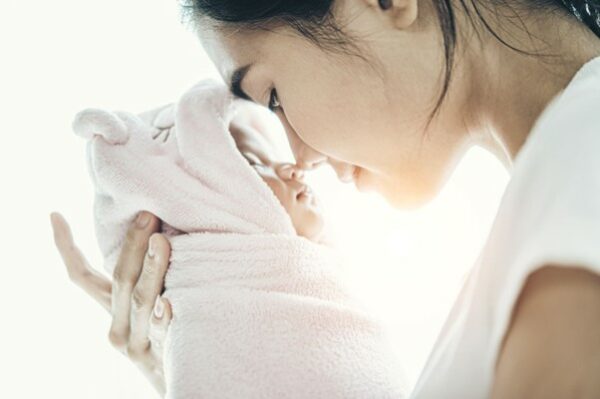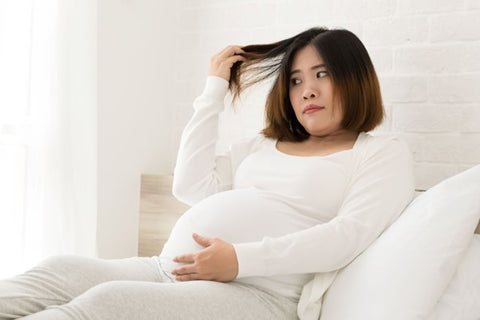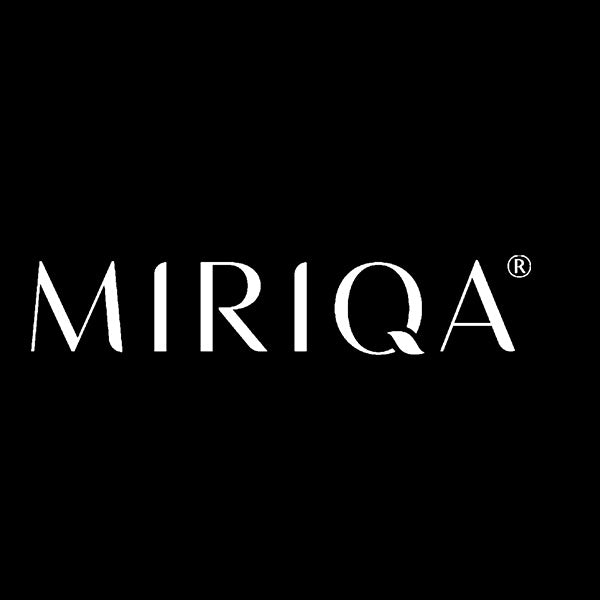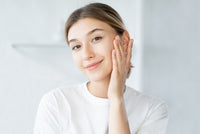Best treatments for postpartum hair loss that work

After 9 months of pregnancy, you finally get to meet your bundle of joy – but it can also easily turn into a stressful event, whether you’re a first-time mother or are trying to juggle between a few children.
On top of adjustments to a new routine and lifestyle, it’s unfortunate that many mothers also have to deal with postpartum hair loss, which can sometimes cause a hit to the self-image, along with other changes to the appearance after giving birth.
Let’s deal with these issues starting from the head – your hair. Chin up! It’s not all gloom and doom! Read on to learn more about what postpartum hair loss is all about, treatments that can help, as well as other useful tips.
What is postpartum hair loss and how does it occur?

Postpartum hair loss refers to excessive shedding of hair, and most mothers notice it happening a few months after giving birth. This doesn’t occur to every woman after childbirth but most women noticed some form of hair loss with varying degrees of severity.
Most women who suffer from postpartum hair loss notice more hair fall than usual in the shower, when they comb their hair, or when there’s more hair to clean up from the floor. To be more specific, the normal rate of hair fall is at around 100 hairs per day but with postpartum hair loss, you’ll see yourself losing more than that daily.
While postpartum hair loss is temporary and usually lasts for around six months, there are some who either hope to speed up the rate of growth or in some cases, there are women who say that their hair never got back to how it was before childbirth.
How do you know if you’re suffering from postpartum hair loss?

Look out for your rate of hair fall. Are you seeing more hair on your pillow after you sleep? Are there more hair stuck in your hair brush or bathroom floor trap?
As the hair fall situation progresses, many women also start noticing that the volume of their ponytail is significantly less or in serious cases, some may even notice balding hairlines or a more obvious scalp.
Cause of postpartum hair loss
Before we talk about treatments, let’s understand the cause of postpartum hair loss first.
As you probably already know, there are significant changes in your hormones during and after pregnancy.
In the last trimester of your pregnancy, the estrogen levels in your body spike. This increase allows the uterus and placenta to form blood vessels in order to transfer nutrients to support the growing baby.
As a positive “side effect” to this rise in estrogen, your hair also grows thicker and more lusher during this period.
After you’ve delivered the baby, estrogen levels dip significantly. With this decrease in estrogen, your hair enters into the telogen phase (resting phase) suddenly after it has been thriving in the anagen phase (growing phase).
This leads to the falling of hair within the next few months, and that’s when you experience postpartum hair loss.
Treatments for postpartum hair loss
Thankfully, for some women, the hair loss problem eventually sort itself out after the baby turns one.
However, if you’re hoping to manage the problem so that your hair will look fuller or to prevent hair loss, there are some things you can do.
Adopt a hair-growing diet

Your postpartum diet is important. Besides replenishing lost nutrients and to revitalise the body after giving birth, nursing mothers will also need to have a good diet so the baby can benefit from it.
Nutrients such as biotin, iron, keratin, vitamin B, and antioxidants are some of the ones that can support hair growth. You can get these nutrients from foods like nuts, eggs, wholegrains, spinach, and avocados. Your baby can also certainly benefit from these good nutrients too if you’re breastfeeding.
Use a hair-volumising shampoo

Use a hair-volumising shampoo
Look out for volumising shampoos that coat the hair with a layer that visibly adds volume to your hair.
While this isn’t really a long-term solution, it does help improve your hair’s appearance and make it look fuller than before.
Avoid hair-damaging processes

Some mothers may find it tempting to bleach their hair or go for a perm right after they’ve delivered their babies, especially when they may have abstained from these hair treatments during pregnancy.
However, these treatments can cause damage to your hair and scalp, which may in turn increase the rate of hair fall or lead to hair breakage.
So if you’re suffering from postpartum hair loss, these may be treatments you’d want to avoid temporarily.
We recommend that you speak to your hairstylist about the postpartum hair loss so that they can recommend a hairstyle that gives your hair a fuller look. Remember to also ask them for a look that’s easy to manage – you’ll definitely want to avoid one that requires too much styling now that you have a baby to care for!
Ask for help and practise stress management techniques

Cortisol, also known as the “stress hormone”, is one of the factors that lead to hair fall. This is also why stressed mothers find it difficult to manage their postpartum hair loss problem.
We know that it’s difficult to feel stressed when you have a new baby. After all, motherhood is a challenging (albeit rewarding!) journey and we completely understand.
As stressful as it may be, remember to practise stress management techniques such as scheduling a short workout, watching your favourite show, or talking to friends whom you know will help you feel better.
Also, don’t be afraid to ask for help from friends and family if you really feel overwhelmed. You’d be surprised how readily your loved ones will extend their assistance to you; you don’t always have to do everything yourself!
Try MIRIQA® Hair for postpartum hair loss

If you’ve been researching for hair loss treatments in Singapore, chances are you may have seen home remedies that advise you to apply coffee powder, coconut oil, or flax seed oil onto your scalp.
They’re usually based on the idea that they contain certain nutrients that can help boost hair growth and that since they’re natural, they are safe to use.
However, take note that these home remedies aren’t just messy but their ability to penetrate into your scalp to offer an effective treatment is low.
If you’re looking for a scientifically backed treatment for postpartum hair loss, MIRIQA® Hair is a hair loss supplement that you can consider.
An award-winning brand that is trusted by the media, celebrities, and thousands of users, MIRIQA® Hair is made from botanical ingredients including Tocotrienol, Tripeptide Collagen, Saw Palmetto Berries, Keratin Forte, and Biotin.
This proprietary blend of nutraceutical ingredients in this hair growth supplement is 100% drug-free and has been clinically proven to boost hair growth.
For the uninitiated, these ingredients are curated to deal with different causes of hair loss, including postpartum hair loss.
For instance, Saw Palmetto Berries support hormonal hair loss, Tocotrienol and Tripeptide Collagen are hair-growing nutrients, and Keratin Forte and Biotin are important in supporting structural building blocks for healthy hair and nails.
With glowing reviews that prove its ability to reduce hair loss and boost hair growth, MIRIQA® Hair also helps improve hair strength and hair shine – something we will definitely appreciate so we can flaunt our crowning glory.
While results vary from individual to individual, some users share that they start seeing positive results as quickly as three to four months.
If you’re looking to enhance your hair growth journey, you can also consider the clinic-exclusive MIRIQA® Hair Extra Strength. The difference between this hair loss supplement and MIRIQA® Hair is the inclusion of two more ingredients: KSM-66 Winter Cherry and Curcumin Bio-max.
KSM-66 Winter Cherry is a proven ingredient that reduces cortisol (remember those stress hormones?) levels so that you can prevent stress-induced hair fall. As for Curcumin Bio-Max, this activates hair stem cells to help it transit from telogen (resting) to anagen (growing), so that you can see hair growth faster.
MIRIQA® Hair and MIRIQA® Hair Extra Strength use botanical ingredients and are drug-free, making them generally safe for anyone above 18 years old but do consult your doctor before consuming any supplements, to avoid any conditions or allergies you may be unaware of.





